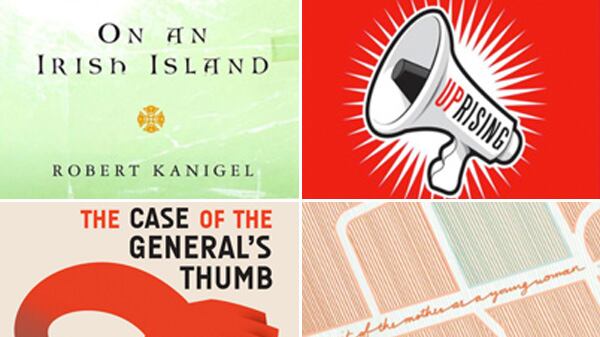Is turning Watergate into fiction gratuitous? Yes. Should you care? Absolutely not, not when the fiction is this good.
By Thomas Mallon
Anyone convinced that the actual events of Watergate surpass any fiction an author could manufacture has not reckoned on the skill of Thomas Mallon. In fact, the more you know about Watergate, the more you will enjoy his novelistic re-creation of that remarkable time. Spreading his narrative around, round-robin style, Mallon follows the thoughts and actions of CREEP operative Fred LaRue, then Pat Nixon, then Rose Mary Woods, Howard Hunt, Nixon, and all the other co-conspirators, indicted and unindicted alike. You know what’s going to happen, of course, and Mallon knows that you know. He uses our omniscience like an extra tool on his belt, as when Nixon, in the midst of addressing the 1972 Republican convention, finds himself looking forward to the end of his second term, when he can retire happily and write his memoirs, “his feet up, a long yellow pad on his lap, the tape recordings from the Oval Office bringing it all back to memory and life.” Well, that they did, if not quite the way he planned. The best character here is the ancient and acidic Alice Roosevelt Longworth, Teddy’s child, married in the White House and with a box seat as witness to the American century. Mallon brings her on as a sort of one woman Greek chorus, and you look forward to her every utterance, e.g., recalling Gerald Ford’s declaration to the convention that “Truth will be our greatest weapon In 1972,” Alice thinks, “Bad strategy … Dick, after all, was the nominee; one didn’t want him playing another man’s game.”
—Malcolm Jones
Scholars and literary types fell in love with Ireland’s Great Blasket Island in the previous century, just when it was in its twilight. The doomed love affair, the dying—what could be more Irish?
By Robert Kanigel

Great Blasket Island, three miles off the coast of Southwest Ireland, has been uninhabited since 1953. Before that it supported a community of about 150 people, mostly farmers and fishermen who, according to Robert Kanigel, “had no electricity, no plumbing, no church, no priests, no police, no taverns, no shops. They spoke Irish, though few could read it or write it. English was for most of them unintelligible.” As the 20th century wore on, the island—about three square miles and completely treeless—was increasingly visited by scholars and linguists fascinated by the pre-modern aspects of the place and its people. It is the interaction of the natives and the visitors that fascinates Kanigel, and he tells the story of the community’s last decades through the succession of visitors, beginning with the playwright John Millington Synge, who “realized that it was only so long before the lore of the people, their old rural community life removed from the clamor of the city, was gone entirely; that in its disappearance something precious was being lost.” Affection for the place and its culture is something Kanigel first admires and then comes to share, and he makes his reader envy those tough, resourceful islanders. But he is no sentimentalist, and never shies from the harsh realities of that lonely spot. He also points out that however much the visiting scholars fell in love with Great Blasket and its people, none of them ever came to stay for good.
—Malcolm Jones
The Case of the General’s Thumb
A twisty crime with two plots set in post-Soviet Russia.
By Andrey Kurkov, translated by George Bird

Pour a vodka when reading this Ukrainian novel, which begins, like an episode of Law and Order, with the discovery of a body. A Kiev detective is in over his head when asked to investigate the death of a presidential adviser, and in parallel, a KGB agent finds himself on a mysterious mission. Set in the late '90s following the collapse of the Soviet Union, the book’s spare prose, short chapters, and gritty ambiance make it an amusing if sometimes slightly bewildering read.
—Rob Verger
Portrait of the Mother as a Young Woman
A novel set in World War II in Rome has little to do with World War II and everything to do with what goes on in the mind of a German woman alone in Rome.
By Friedrich Christian Delius. Translated by Jamie Bullock.

The most recent novel of acclaimed German author Friedrich Christian Delius, translated by Jamie Bulloch, delivers us a complete story in a small package. As in its Joycean namesake, Portrait of the Artist as a Young Man,” Delius utilizes a stream-of-conscious technique to clue us into the inner life of his protagonist. Though unlike the beauty-obsessed writer Stephen Dedalus, Delius brings to life a religious young German wife spending time in Rome during World War II. Her husband has recently been called away from his leave in Rome to Africa, forcing his young wife to be left alone after only a short time. Pregnant and on doctor's orders, she begins to take a stroll through the city, and thus Delius pens her thoughts.
The prose style does well to reflect on the tension between the main characters’ belief in God, “who is love, who delivers all to us, that it may benefit us in the end,” and her ever-lasting love for her husband, Gert, with the harsh realities of Italian wartime poverty. “Naive” about sums her up. Despite the politics that were obviously ripe for consideration, she is “always silent when national and political questions were discussed.” Her surface apolitical scope, however, does not save her from thoughts of the difficulties of rationing for Italian families, or from views of German officers stationed all throughout the city, drinking beer by the glass in the early afternoon. Her simplistic and nearly childlike views on the wartime situation merely underscore the beauty around the edges of something popularly thought of as ugly and complex (the war), and Delius is wise in penning her so. By cutting through the extraneous political questions, Delius is able to deliver us an artistic and mood-driven piece, having tackled everything and “not much” all at the same time through the voice of this single young girl.
Interestingly, the novel is not punctuated once save for commas, and thus the reader might find himself unable to “take a breath.” Delius has nonetheless delivered a beautiful tale that also reads as a breathless tour of Rome, and it is recommended to anyone who sustains an interest in the stylistic innovations first practiced by Joyce and Woolf, as they continue to be practiced today.
—Samuel Leon
Uprising: How to Build a Brand—and Change the World—by Sparking Cultural Movements
The intersection of social movements and marketing strategies is this book’s turf, and the author convinces you that campaigns to sell shoes and the Occupy movement have a lot more in common than you think.
By Scott Goodson

No Logo author Naomi Klein and the millions of participants of the many uprisings that have gripped the world in the last year or so might be offended by a writer appropriating “movements” to describe the act of buying a pair of sneakers. But the fact remains that brand consumerism is every bit as feverish an act of group campaigning as the Woolworth sit-ins, Occupy Wall Street, or the Tea Party. It’s a reality that marketing professional Scott Goodson wholly embraces. He gives many examples of how people connect to and lead the next big thing: "It Gets Better," TOMS shoes, LIVESTRONG, Steve Jobs and Apple. Goodson is the founder of the advertising firm StrawberryFrog, which he calls a “movement agency." Although you can’t plan revolts like the Arab Spring, entrepreneurs and marketers like Goodson are in the very business of predicting what people will go crazy over for next, and he tries to give form to group dynamics that seem unpredictable. Many others have tried before, but the best of the lot—Elias Canetti’s Crowds and Power and Charles Tilly’s Social Movements, 1768-2008—make the reader tread through trench-deep waters. If you still want to get a sense of how groups think, this is the book for you.
—Jimmy So





